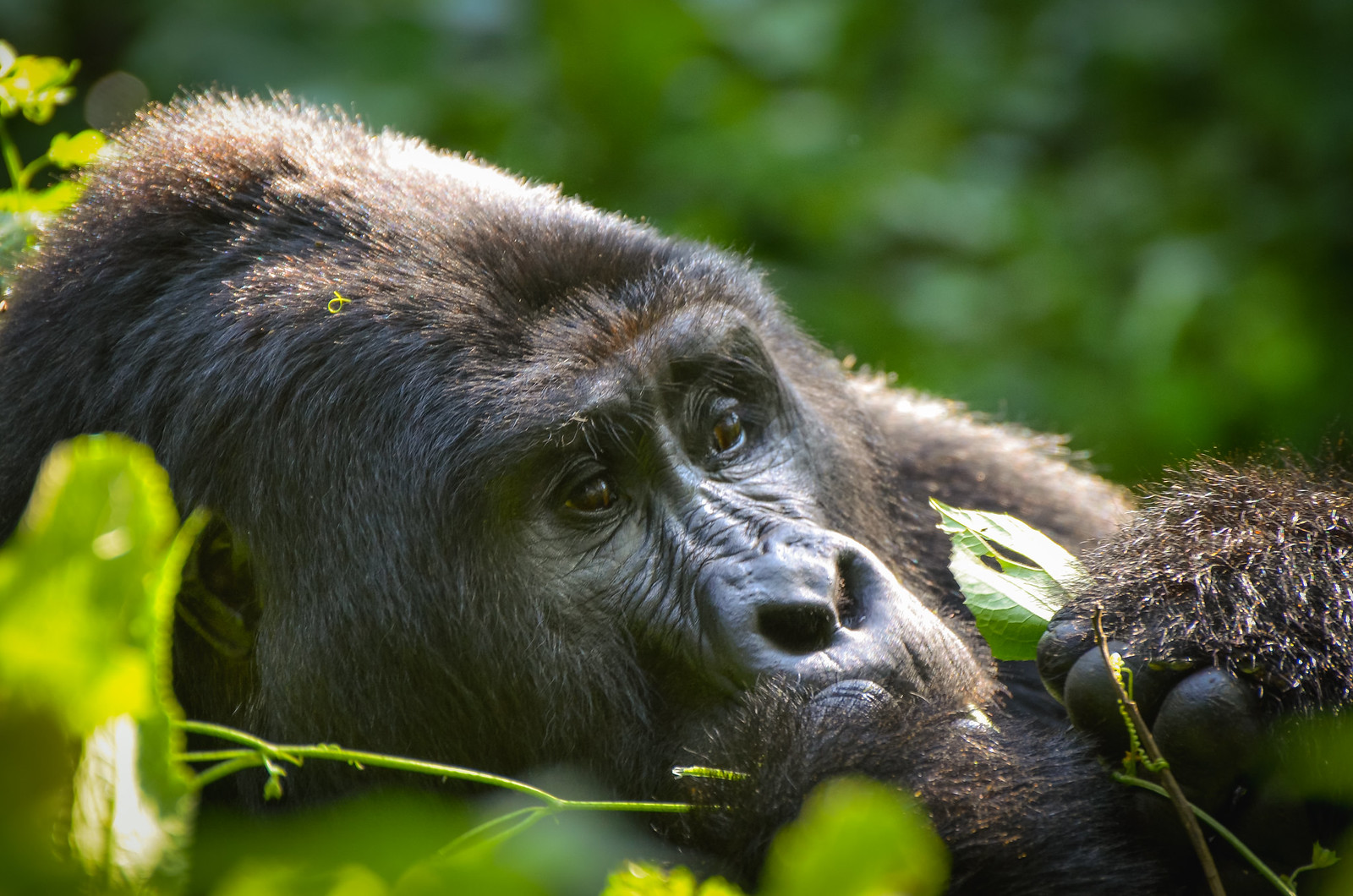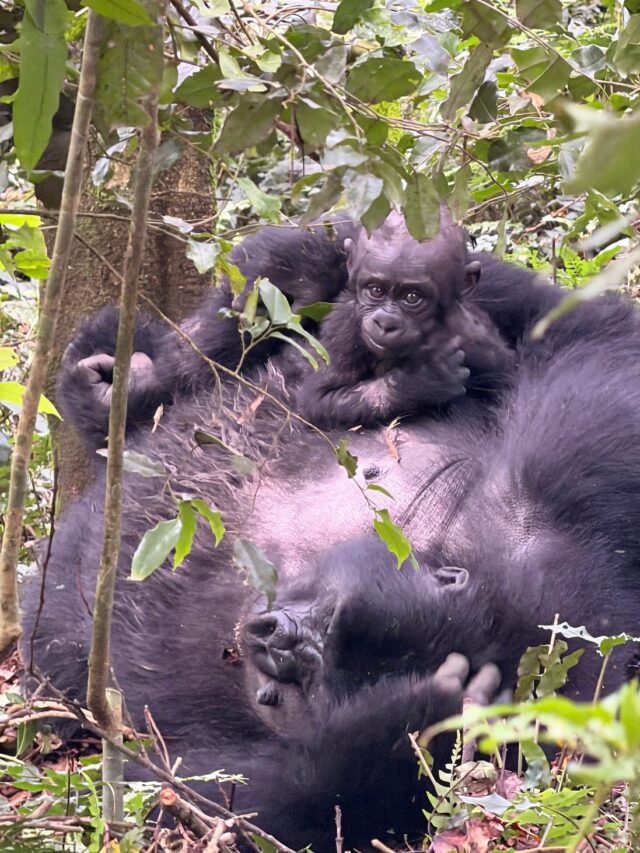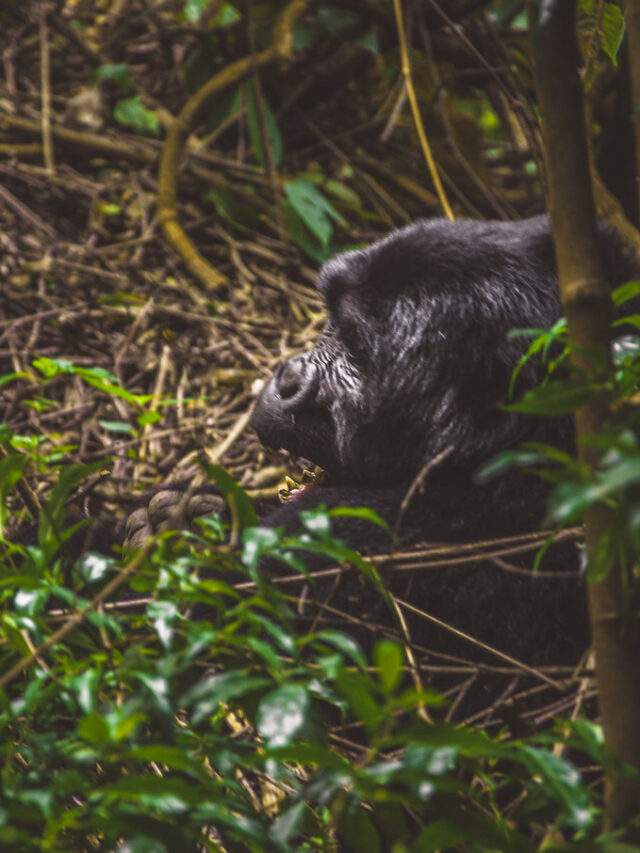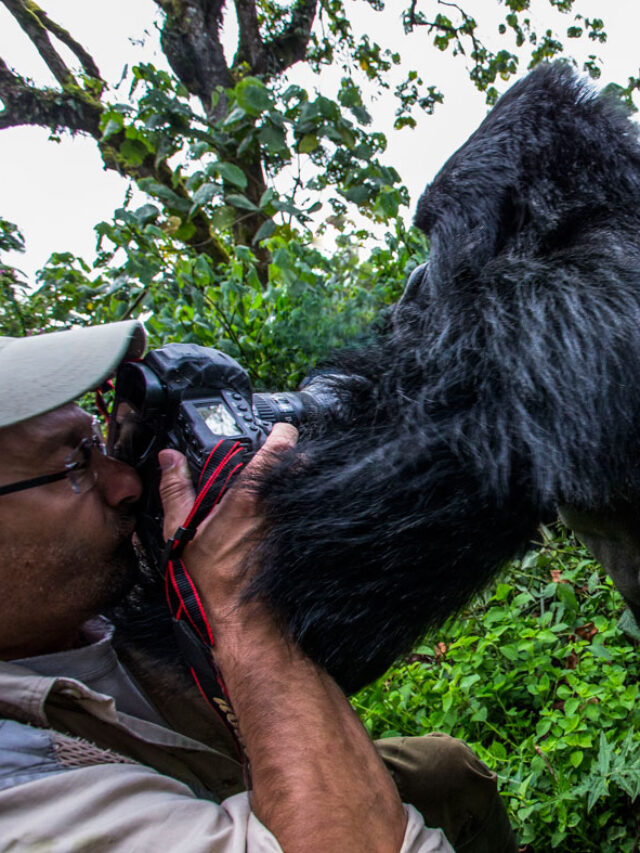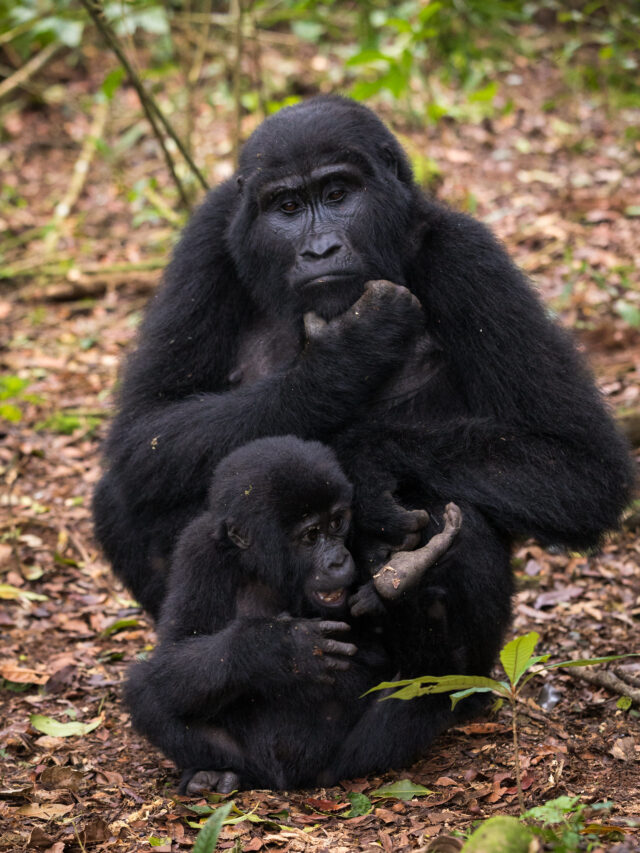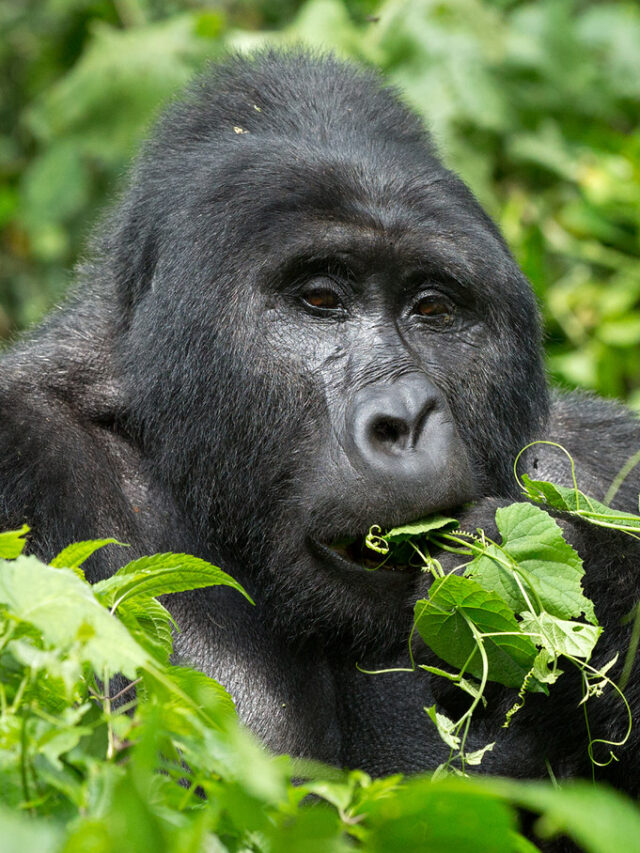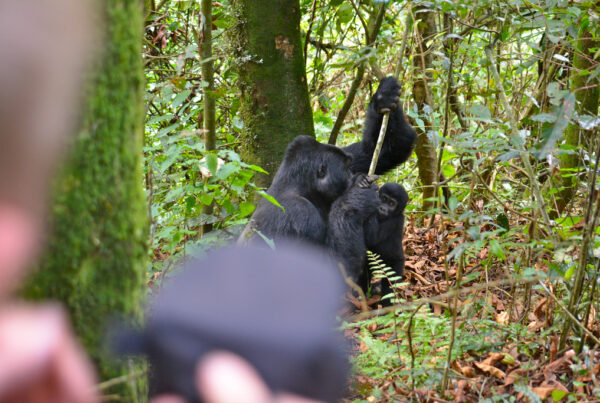Why Adult Male Mountain Gorillas Stay Etched in Your Mind After Gorilla Habituation
Meeting the Gentle Kings of the Forest: A Deeply Moving Encounter
In the stillness of Uganda’s mist-shrouded jungles, when the crunch of your boots fades and all that remains is the distant hum of insects and the heartbeat in your chest, you finally come face-to-face with a presence so profound, so commanding, that it leaves an imprint on your spirit. That moment — when your eyes meet the calm, intelligent gaze of an adult male mountain gorilla — especially during a gorilla habituation experience, becomes one you can never forget. These awe-inspiring creatures, known as silverbacks once they reach maturity, are more than just magnificent symbols of Africa’s biodiversity.
Adult Male Mountain Gorillas — They are emotional beings, leaders, fathers, and guardians of the forest, and something about them lingers long after you leave the shadows of the canopy.
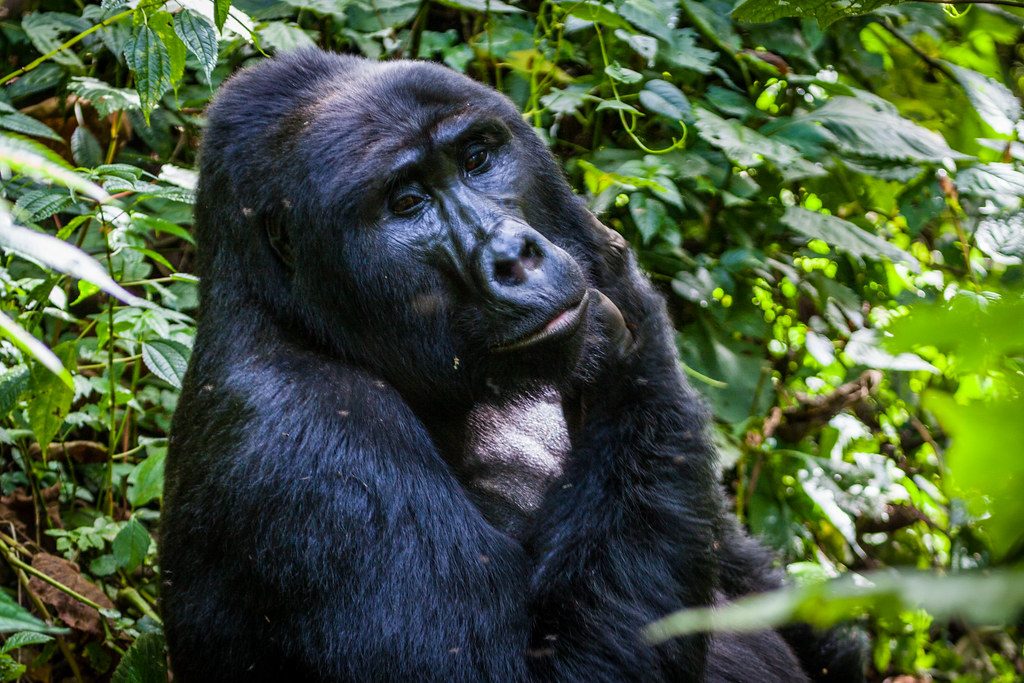
The Power of Presence: Raw Strength Balanced by Grace
The first thing that grips you about an adult male mountain gorilla is his sheer physical presence. Towering at up to 5.5 feet when standing and weighing more than 160 kilograms, the silverback is the largest and strongest primate on Earth. His broad chest, the glint of silver down his back, and the defined muscles that move with controlled power are enough to strike both awe and reverence into your heart. But the truth that hits deeper is not his size — it’s his calm. His authority isn’t shown through force, but through an unshakeable composure. During a habituation trek, where visitors spend up to four hours observing a semi-wild gorilla group in the process of being gently accustomed to human presence, you witness how the silverback watches over his family. His movements are slow, deliberate, protective. He does not need to assert dominance with aggression — his leadership is spiritual. And that contrast, between overwhelming strength and quiet grace, gets seared into your memory forever.
Eyes That Speak Volumes: Intelligence, Emotion, Connection
There is something hauntingly human about locking eyes with an adult mountain gorilla. Especially during the longer habituation process, as you stay longer than the usual one-hour trek, you start noticing subtle expressions, body language, and personality traits that speak volumes. These silverbacks are not just intelligent; they are emotionally expressive. One moment, you might catch him watching you with a look of mild curiosity. Another moment, he might turn his head with a gesture of peace or slowly approach to sit a few meters away, showing you that he sees you not as a threat but as a presence.
And in that exchange — brief yet eternal — the illusion of human supremacy begins to fade. You realize that what you see in him is not just animal instinct, but thought, memory, feeling. It’s almost unbearable how deep the connection goes, and it is this intensity that makes adult male gorillas live in your mind long after the forest has closed behind you.
The Role They Play: Protectors, Peacemakers, Pillars of the Group
One of the most powerful aspects of witnessing adult males in a gorilla habituation group is seeing their role within their family structure. A habituated group is often led by a dominant silverback, and observing his role for hours offers insight into a society built on care, guidance, and balance. He decides where the group moves, mediates social tensions, disciplines younger males with gentle authority, and tenderly looks after infants — sometimes even cradling them in ways that make your heart ache. The patience he shows, the way he allows juveniles to climb over him or poke at his face, reveals a nurturing side that shatters stereotypes about male dominance in the wild.
During habituation, you witness not only the alpha’s strength but also his wisdom. You see the trust his group places in him. And in that slow, immersive experience, you realize that this isn’t just wildlife observation — it’s a privilege to witness a social order more peaceful and respectful than many human ones.
A Spiritual Shift: Why the Memory Refuses to Fade
There is a spiritual weight that follows you out of the jungle after spending intimate hours with an adult male mountain gorilla. It’s not just a memory; it’s a transformation. Your worldview shifts, sometimes subtly, sometimes dramatically. You start to understand conservation not as a duty, but as a calling. You begin to see forests not just as land, but as sacred homes. And you realize that gorillas are not “just animals.” They are fellow beings — intelligent, sensitive, and endangered — whose survival depends on human empathy.
That silverback’s calm stare — the one that searched your soul as much as you searched his — it stays with you. His slow chest beats, the way he scratched his brow, the flicker of thought in his eyes — these moments become flashbacks that come uninvited in the quiet of night or the rush of your daily life. And this is why adult male mountain gorillas, once met during a gorilla habituation trek, are never truly left behind. They become a part of your internal world — a reminder of a time when the line between human and wild dissolved, and the only thing that remained was connection.


